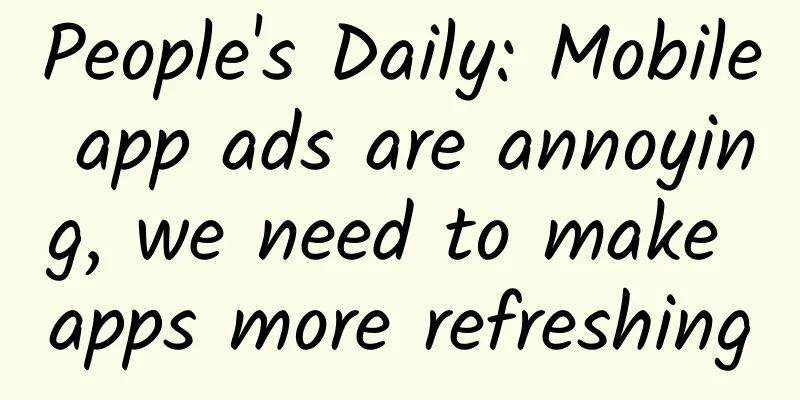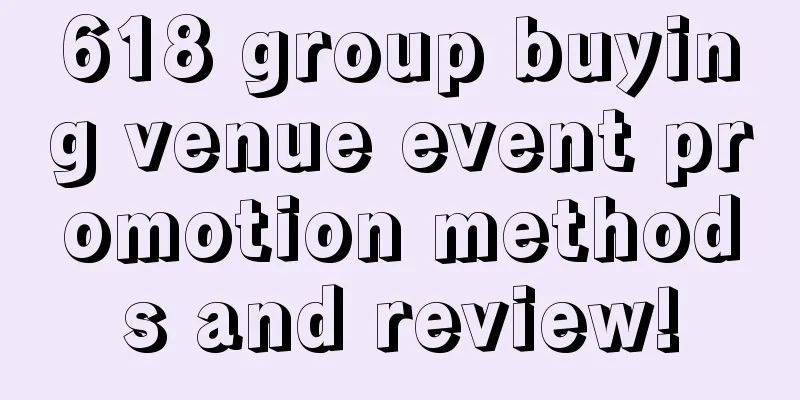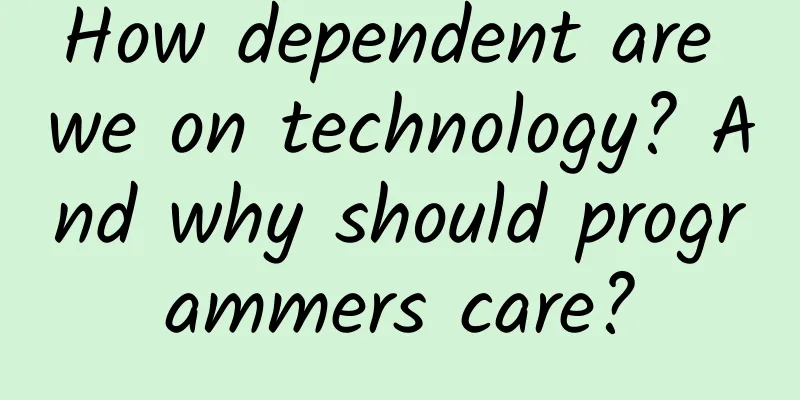People's Daily: Mobile app ads are annoying, we need to make apps more refreshing

|
People's Daily (Page 6, August 9, 2021) When you open a commonly used mobile application (App), there is a close button for the splash screen ad; after closing the splash screen ad, the interface becomes clean and clear, and the opening speed is also much faster... Recently, the Ministry of Industry and Information Technology has carried out centralized rectification in response to illegal behaviors of mobile apps that have received strong feedback and many complaints from users, such as inducing users to click to jump, and pop-up ads that are difficult to close, and has achieved phased results. In recent years, with the rapid development of mobile Internet, various mobile apps have gradually become "necessities" in people's daily lives. But at the same time, some mobile app advertisements have problems such as "pop-up information logos are almost invisible, close buttons are as small as ants, pages are disguised to conceal the truth, and clicks are induced secretly", which are very annoying. This not only reduces the user experience, but also hides the risk of infringing on user rights. Whether from the perspective of protecting the legitimate rights and interests of users and privacy security, or from the perspective of maintaining the order of network services, it is necessary to increase governance efforts. It is for this reason that the Ministry of Industry and Information Technology's centralized rectification this time has won praise from many parties. There is nothing wrong with mobile apps accessing advertisements. The key is that the relevant operations must comply with legal provisions. Article 44 of the Advertising Law clearly stipulates: "The use of the Internet to publish and send advertisements shall not affect the normal use of the Internet by users. Advertisements published on Internet pages in the form of pop-ups or other forms shall be clearly marked with a close sign to ensure one-click closure." Article 8 of the Interim Measures for the Administration of Internet Advertisements also stipulates: "Users shall not be induced to click on advertising content by deception." Since March last year, 11 departments including the State Administration for Market Regulation have jointly issued a notice emphasizing the resolute containment of the frequent and easy occurrence of false and illegal advertisements such as mobile apps and self-media accounts; in October last year, the State Internet Information Office issued the first batch of special rectification lists for the chaos of mobile app pop-up advertisements; and then to the special rectification action for mobile apps launched by the Ministry of Industry and Information Technology this time, relevant departments have made a lot of efforts in recent years and have achieved remarkable results. Data shows that in the second quarter of this year, the number of user complaints and reports on mobile app pop-up information dropped by 50% month-on-month, and the problem of misleading users to click to jump to third-party pages dropped by 80% year-on-year. The results are worthy of recognition, but governance needs to be persistent. In the era of mobile Internet, attention is a scarce resource, and embedded advertising and traffic monetization have become means for many applications to make profits. Driven by interests, some businesses are inevitably lucky and take risks. This is also an important reason why some mobile app ads cannot be turned off or withdrawn. At the same time, there are many types of mobile apps, and the ways and publishers of different types of apps in advertising business activities are different, which also increases the difficulty of governance. Governing mobile app ads is a long-term task that requires long-term efforts. On the one hand, we should increase the supply of systems and strictly regulate mobile app ads. For example, we can introduce a "blacklist" system to increase the cost of violations. On the other hand, we should also make good use of technology to solve problems. For example, we should make good use of technical means such as big data and artificial intelligence to accurately identify and monitor the advertising of mobile app platforms and strengthen the targeted supervision. To make mobile apps clean, not only regulatory agencies need to play a role, but also operating platforms need to control the "content" of advertisements. When users choose a mobile app, they consider both convenience and comfort. Therefore, mobile app operators must be user-aware. Only by winning word of mouth can you win the market. Carrying user rights, user experience and social responsibility on your shoulders and in your heart is the inevitable choice for enterprises to move forward steadily, and it is also the key to mobile apps winning users. |
<<: iOS 15 official version is approaching: Apple expands the scope of Beta testing
Recommend
Fund investment and financial management course for beginners, index fund fixed investment practical video tutorial online course
Fund investment and financial management course f...
15 key activity designs in the social network operations of 5 major brands
When it comes to community operations , many peop...
Are developers being forced to retreat by the difficulty of monetization? Does the WeChat Mini Program bonus still exist?
In recent months, fewer and fewer development tea...
Web Dev: 2017 highlights and 2018 predictions
What exciting events in 2017 have the industry le...
Short video operation: short video script creation skills
I don’t know when it started, but short videos su...
How does Luckin Coffee manage to generate private domain traffic?
When it comes to Luckin Coffee , everyone should ...
How to run a marketing campaign with high conversion rate
This article summarizes my experience and feeling...
Let’s talk about the three common mainstream promotion methods of Taobao customers
Today I want to talk to you about the common ways...
With just two changes, Apple gave StyleGANv2 the ability to generate 3D images
How to make an existing 2D GAN into 3D level? Thi...
Lhasa SEO Training: How to determine the essential needs of users?
First of all, how do we determine the essential n...
Practical example of setting up a bidding OCPC account
Many friends have not tried ocpc yet. In fact, oc...
Musk and Hawking, concerned about artificial intelligence, were awarded the Prize for Opposing Technological Progress
[[162215]] You wouldn’t think of Elon Musk and St...
Kuaishou live broadcast promotion introduction and delivery guide
I heard that you work very hard when you are live...
The technical ideals of old programmers
[[133852]] When I was a child, my teacher asked m...
Facebook and Twitter's "Growth Hackers" tell you about user growth!
Andy Jones was a growth hacker for companies such...









